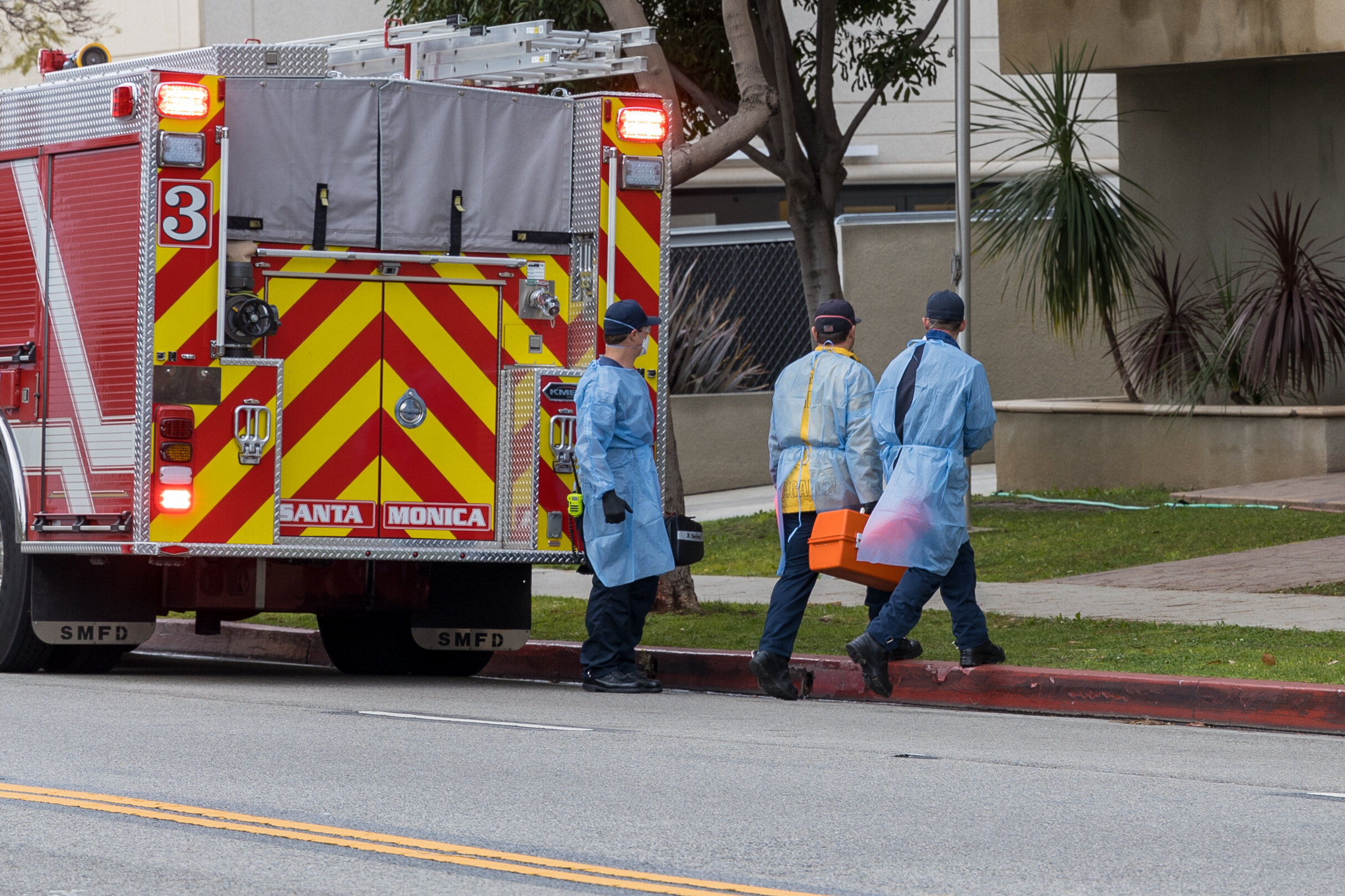COVID-19 Protective Supply Crisis
Firefighters respond to a call at a skilled care facility in Santa Monica, California on April 8, 2020. Facilities that care for the sick and elderly are especially vulnerable to becoming hotbeds for the COVID-19 pandemic. (Maxim Elramsisy / The Corsair)
As the coronavirus disease continues, health care systems in the United States have become overwhelmed with infectious patients seeking testing and care.
Preventing the spread of the infection depends on the persuasive use of personal protective equipment (PPE) by medical workers and potential patients—face masks, air-purifying respirators, gloves, face shields, respirators, and surgical gowns.
An increase in PPE supply usage in response to COVID-19 will require large manufacturing, a process that will take time many health care systems do not have.
Due to the rapid increase of ill COVID-19 patients in emergency rooms, healthcare facilities are forced to implement alternative ways in order to protect medical workers from contracting the virus. Medical professionals are forced to disinfect and reuse the same masks as the hospitals are unable to supply them.
Dr. Stephen Robin, a USC dentist who volunteered in hospitals regarding dental emergencies, states, “there is a shortage of N95 respirators which are critical protection from contracting the virus when working with an infected patient,” he continues, ”I usually just disinfect mine and reuse it.”
Federal health officials stated that respiratory masks should be used only for up to eight hours of continuous use and be discarded after the treatment of an infected patient. Medical workers around the United States are being given one N95 respiratory mask and are advised to reuse it without the acknowledgment of whether the disinfecting of the mask will help preserve it.
When face masks and other protective supplies are unavailable, the Center for Disease Control and Prevention (CDC) recommends using face shields without masks, and the use of homemade masks, perhaps from bandanas or scarves if necessary, putting medical professionals at risk for COVID-19 complications.
Some members of the general public have made unconventional alternatives for personal protective supplies, such as plastic garbage bags for gowns, cutting out the bottom of gallon water bottles for eye protection, and using sewn homemade masks. However, hospital workers are unable to use homemade personal protective supplies.
It is uncertain if the alternative protective supplies have the ability to filter infectious agents and help prevent the spread of the virus, although it is clear that they are better than no protection at all.
As some hospitals in the United States are unable to provide PPE for all of their employees, many medical workers are working from home. After volunteering in hospitals and working with dental emergencies, Robin has begun virtual dentistry where he examines and diagnoses the patients. He stated, “I virtually exam, diagnose, and prescribe medication as needed to keep those dental emergencies from going to the emergency room and taking up space for COVID-19 victims.”
Robin and other medical workers are hoping that the Federal government and CDC work together to take precautions and solve this issue. With limited options for immediate government action towards this crisis, fear and anxiety continue to rise.
“We have to press the Federal government to release the stockpile of supplies of protective gear that is reserved for war,” Robin says. “This is war."

